
上/Hotel tenfaceの客室
■デザインで勃興をはかるタイランド
タイ・デザイン隆盛のはじまりは、およそ10年前にまで遡る。
中国が“世界の工場”として存在感を示すようになるにつれ、タイのプロダクト生産コストにおけるプライオリティーは相対的に下降した。こうした状況に対し、出された答えが“デザイン”という付加価値の創造だった。
インテリアデザイナーでもあり、タイ・インテリアデザイナーズ・アソシエーション(http://www.tida.or.th/)のエグゼクティブメンバー、Somchai Jongsangさんは言う。
「とにかく地盤固めの10年でした。世界に通用するデザイナーの育成、その才能を発信するための場の提供、全方位的な試みをしてきました」。
好例がTCDC(タイ・クリエイティブ&デザイン・センター/http://www.tcdc.or.th/)やBACC(バンコク・アート&カルチャー・センター/http://www.bacc.or.th/)といったデザイナーを支援するための施設開設だ。
05年に開業したTCDCは、2万冊以上のアートブックや250種のデザイン系雑誌、DVDが閲覧でき、ニューヨーク企業とのコラボレートによる4000種類以上の最新マテリアルを収蔵する資料室も備える。会員数はすでに2万人近いという。
また、インターナショナルを冠した見本市も数多くスタート。TIFF(タイ・インターナショナル・ファニチャー・フェア)といった、世界も注目する見本市も育っている。
真心を込めて蒔いた種に与えられた水が、空前の好景気だった。アジア通貨危機で一旦は停滞したタイ経済だったが、積極的な輸出政策を採ることで再び上昇に転じ、2010年には7%台の成長率を記録。こうして富裕層と貧困層という二極化が崩れ、中流層が台頭した。結果、マーケットは旺盛な消費能力を得て、デザイン力は購買の大切なモチベーションとなった。
都市開発が活発化することで、それは建築にも波及した。「ほんの少し前まで、デザインを学ぶ学生に求められたのは、物資を効率的に運送するためのいわば“トラック”だった。それが今では“スポーツカー”を作れというスタンスに変わっている」。こう話してくれたのは、家具などを手掛けるデザイン事務所、SLAP(http://www.slapstudio.net/)のSuponwat Kitpakornsantiさん。ひところは海外留学がトレンドになったが、インフラが整ったことで国内で学び、第一線で活躍するデザイナーも増えているという。
海外建築コンペの常勝集団を率いるアーキテクト、MEEさんはバンコクの大学を卒業後、現在の設計デザイン会社に入社。「バンコクは今、実地で学べる環境にある。十分勝算はある」と語る。
「施工技術の点ではまだ劣るところもあるものの、我々のデザイン力は確実に向上している。力が試せる環境があるのも大きい」(MEEさんの師匠でバンコク随一のアーキテクトとして知られるKongsak Yuktaseviさん)。
先のSOMCHAIさんは言う。「若手デザイナーはタイならではの伝統、文化にコンテンポラリーな感性を融合するセンスに長けている。カービング(タイ独特の彫刻)に代表されるクラフトマンシップもある。ホテルやリゾート施設は、すでに世界レベルの高い評価を得ています」。
“微笑の国”はいまや、スパや屋台といったオリエンタル一辺倒のイメージを払拭し、デザインという新興ジャンルが、急速な勢いで国際的競争力を獲得しつつある。
(取材と文、写真/竹川 圭 エディター、ライター)
■Thailand Rises through Design Industry
Rising of Thai design started 10 years ago.
As China started showing its presence as “a World Factory”, Thailand was less prioritized in terms of product costs. And to solve this situation, they came up with the idea creating added value by “Design.”
Mr. Somchai Jongsan, Interior Designer and Executive Member of Thai Interior Designers Association (http://www.tida.or.th/ )says “We have been making efforts for 10 years just to establish the foundation. We tried all aspects to develop world-class designers and provide communication outlets for their talent.”
Establishing facilities to support designers such as Thailand Creative & Design Center (TCDC: http://www.tcdc.or.th/) and Bangkok Art & Culture Center (BACC: http://www.bacc.or.th/) is one of good examples.
TCDC, which opened in 2005 has collection of more than 20,000 art books and 250 kinds of design magazines and DVDs for browsing as well as Material ConneXion, an extrinsic facility with more than 4,000 kinds of the latest materials, established through the collaboration with the company in New York. The center already has members close to 20,000.
Also, they have been organizing many “international” tradeshows. Some tradeshows such as Thai International Furniture Fair (TIFF) were grown into what the world keeps eye on.
Seeds were planted with their whole heart and fertilized with unprecedented economic prosperity. Although Thai economy slowed down due to the Asian Financial Crisis, they achieved 7% of the growth rate in 2010 by taking the strategy on active exporting. They used to have two extreme income groups, poor and rich, but middle-class started emerging. As the result, the market gained strong buying power, and the design has become an important factor for purchasing.
Activated Urbanization Influenced Architects. “Until recently, what design students were expected was just like “a truck”, which transport goods effectively. But now, they were asked to make “a sports car” instead.” says Suponwat Kitpakornsanti of SLAP Studio (http://www.slapstudio.net/), a design company that designs furniture.
Studying overseas was once popular, but now, there are more students, who study in Thailand and are becoming frontline designers, as the educational infrastructure has been developed.
Khun MEE, who leads the invincible team at international architectural competitions, graduated the university in Bangkok and joined the current design firm. He says, “In Bangkok, we have the learning environment in the field. We have a good chance of success.”
“Although construction technology still has to be improved, design skills has definitely been progressed. It is also important that we have the environment we can try out our ability” (Mr. Kongsak Yuktasevi, Khun MEE’s boss and the leading architect in Bangkok.)
Khun SOMCHAI also says, “Young designers are good at adding contemporary touch to cultural items. We have our own craftsmanship such as traditional Thai curving. Hotels and resort facilities have already been highly recognized in the international market.
Oriental image such as spa and street venders representing “Land of Smile” is already history. They are rapidly gaining the international competitive power in the field of design.
(Text and Photos/ Kei Takegawa, Editor/Writer)
————————————————————————————————————-
【海外コンペの常勝集団「L65 & ASSOCIATE」】
海外の建築コンペでも高い勝率を誇るという設計デザイン事務所「L65&ASSOCIATE」。同社アーキテクトのMEEさんは、その秘訣をこう語る。「クライアントや環境に配慮したコンセプトを備え、フレキシブルに事に当たるフットワークの軽さが欠かせません」。今回の取材をアテンドしてくれた宮崎秀樹さん(単身バンコクへ渡り、建築設計事務所を主宰するインテリアアーキテクト)は、彼らを次のように評価する。「日本のデザイナーであればコスト面等で断念せざるを得ないような案件においても、彼らはクライアントの意向、文化を汲み取ったデザインが具現化できる。しかしそれは、世界においてはスタートラインに立つための最低限の条件であり、ふり返って日本の後進性が浮き彫りになります」。
【Invincible Team at International Competitions “L65 & ASSOCIATE”】
Khun MEE, Architect at “L65&ASSOCIATE” comments on his design firm’s high winning rate at the international architectural competitions, “It is inevitable to provide the concept with careful consideration on client’s needs and the environmental issues and have flexibility and agility to respond.” Mr. Hideki Miyazaki, who helped all interviews and photo shooting this time, comments on them, “They can materialize clients’ needs and design with cultural touch for their works, which Japanese designers may have to give up due to the cost strain. But that is the minimum standard that designers have to achieve to start up in the international market, and that makes Japanese backwardness come out.” (Mr. Miyazaki is an interior architect. He moved to Bangkok and runs his own architect firm there.)
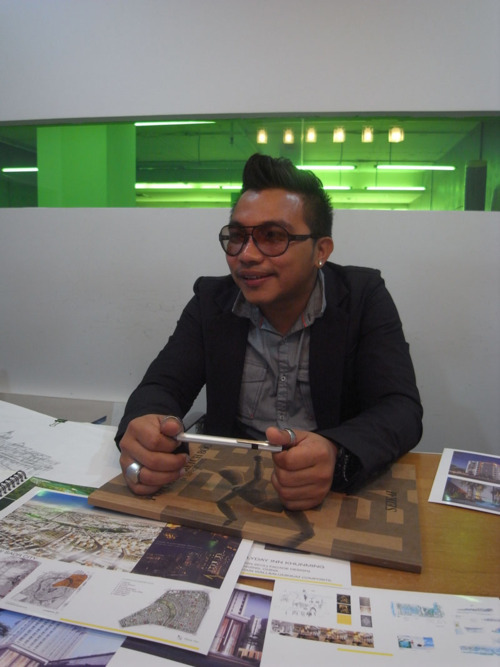
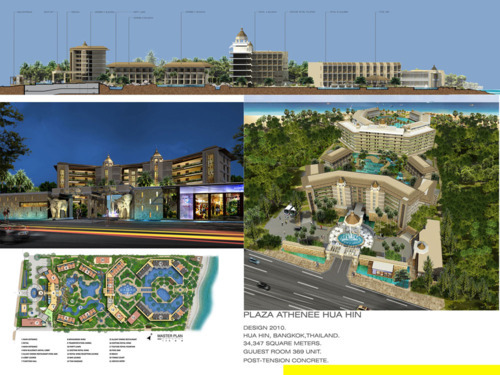
上/L65&ASSOCIATEのMEEさん。最近、イラクのバクダッド「サドルシティ再開発」では、街そのもののデザインを提案。下/これもコンペで勝ち残った「PLAZA ATHENEE HUA HIN」のパース。バンコク第二の財閥が運営する高級ホテル。
Top/ Khun Mee of L65& ASSOCIATE. He recently proposed the design for “Redevelopment of Saddle City” in Baghdad, Iraq. Bottom/ Perspective drawing for “PLAZA ATHENEE HUA HIN”, which he won at the competition. It’s own by the second richest family in Bangkok.
【バンコク・デザインを象徴する人気ホテル「tenface」】
タイの伝統とモダンな感性を融合し、バンコク・デザインのもっとも優秀な回答例として注目を集めるのがホテル「tenface」。08年に開業し、平均で90%以上の稼働率をキープしている。そのほとんどが海外からのビジネストリッパ-であり、ワールドワイドで通用するクオリティーを備えていることがわかる。コンパクトでミニマルな、伝統をモチーフにしたデザインワークは顧客に質の高い快適な時間を提供している。
【“tenface” popular hotel, which represents Bangkok Design】
“tenface” is one of the best practices of Bangkok Design, which presents traditional Thai motif mixed with contemporary touch. The hotel opened in 2008 and maintains exceptional occupancy rate of 90%. Most of their guests are business travelers from overseas, and that shows their quality meets the international standard. Its compact and minimal design works with traditional items provides the guests a quality stay.
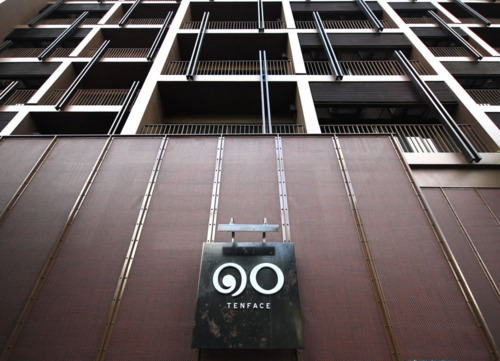

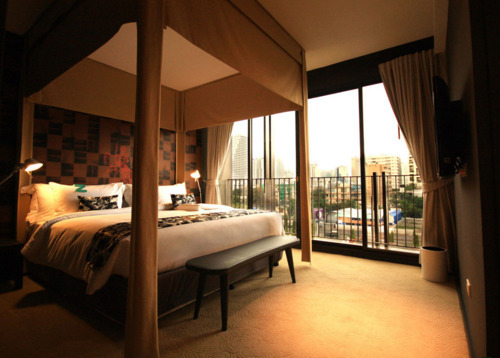
【規格外の発想でインパクトを与える「longtable」】
08年4月にオープンしたダイニングバー「longtable」。その名の通り、全長24メートルにおよぶカウンターテーブルがウリ。地上25階からの夜景が一望できるオープンエアも見逃せない魅力の一つだ。建築基準法が緩いことに加え、若手デザイナーの活躍の場が広がってるバンコクでは、ダイナミックな建築がそこかしこに誕生しているが、その代表的な空間が「longtable」と言えるだろう。
【Giving Impact with Non-standard Idea – “longtable”】
“longtable” is a dining bar opened in April 2008. As the name tells, they have a symbolic 24-meter counter table. The open-air area, where the guests can enjoy the night view from the 25th floor where the venue located, is one of the best features not to be missed. There are so many dynamic architectures everywhere in Bangkok, where young designers are taking an active part, and their less strict building standards law may also make some contribution.

【日本での認知が広がる家具デザイナー「o-d-a」】
木をテーマにしたインターナショナルなデザインフェア「国際家具デザインコンペティション旭川」で前回入賞を果たし、2011年も最終選考まで残っている「o-d-a」。「タイの文化は大切だが、表層をなぞるような手法には疑問がある。僕らのスタンスは、“デザインも英語で話そう”というもの。内面にあるものをどうデザインに昇華するかが肝要であって、タイらしさとは結果としてついてくるものだと思う」(デザイナー、Piti Amrarangaさん)。前出の宮崎さんは、「こうした才能が誕生する背景には、彼ら自身のポテンシャルもさることながら、スキルを磨く環境がバンコクに整いつつある証拠でしょう」と話す。
【“o-d-a”, a Furniture Designer Gaining More Recognition in Japan】
“o-d-a” won the prize at the wood-themed “International Furniture Design Competition Asahikawa” in the previous year and also made it to the final in 2011. “Thai culture is precious, but it’s questionable to adopt it superficially. My attitude to design is <speaking design in English. > How we sublimate what we have inside into design is most important, and then Thai-style will follow.” (Mr. Piti Amraranga, Designer) Mr. Miyazaki also says “More talents are being developed, that’s not only because there are high potential designers, but also there is the environment where they can improve their skills in Bangkok.
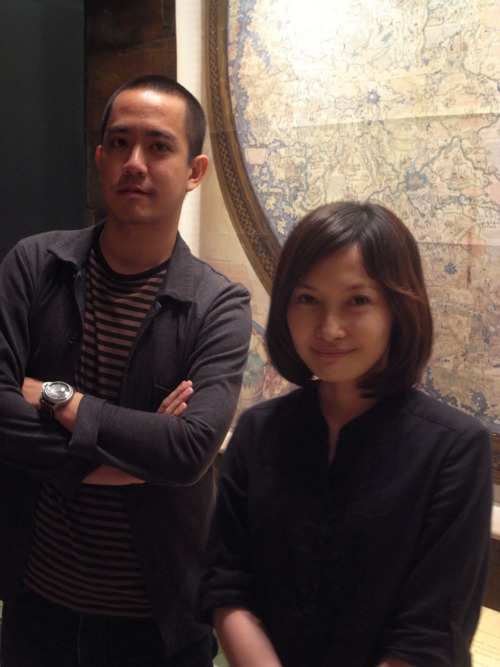
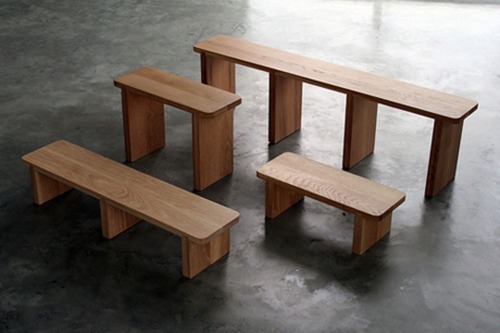
バンコクでは洗濯など、ふだんの生活で使う背の低いスツールをモチーフにデザイン。スツールのみならず、ログやベンチまでラインナップ。ソリッドなウッドのそれらコレクションはモダンさと同時に温かみを内包している。絶妙なサイズ感で、生活のあらゆるシーンで活躍してくれそうだ。
Design of the small stool was inspired by a chair used for doing laundry in Bangkok. They have not only stools but also logs and benches. The collection made from solid wood creates modern yet warm touch. They are just in right size and usable in various scenes in daily life.
【使い勝手の良さに個性を見出す「SLAP」】
4人のメンバーの頭文字からその名を取り、2007年に創業したSLAP。アート志向のデザイナーが多いバンコクのデザイン界にあって、ユーザーの使い勝手を第一とした機能美を目指す、叩き上げのプロダクトデザイナー集団だ。デザイナーのSuponwat Kitpakornsantiさんは、「北欧デザインに代表される、シンプルな中に個性を生むデザインワークが信条です」と話してくれた。
【Creativity within Usability “SLAP”】
SLAP was named after the initials of four founders and established in2007. They are the real professional team of designers, who seeks industrial beauty while making usability a top priority, although many of other designer focus on an artistic aspect. Mr. Suponwat Kitpakornsanti, Designer says “Simple yet unique design, just like Scandinavian design, is our core value”
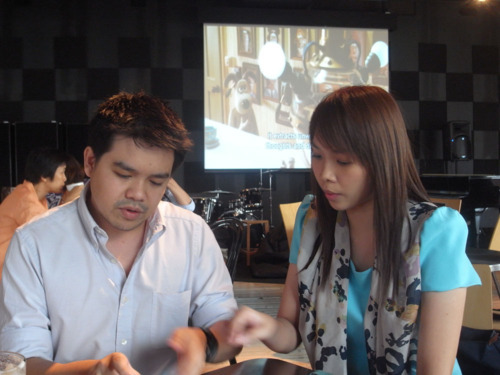
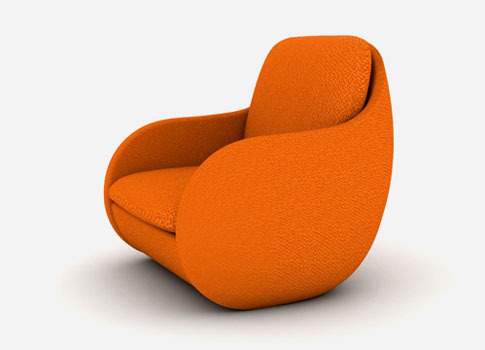
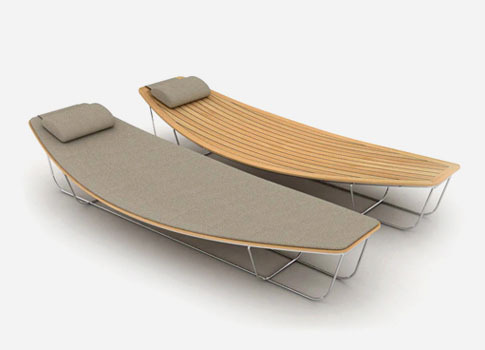
上/木製のフレームをクッション材でくるりと覆うという斬新な発想のソファ。 下/ヨットの船底部をモチーフにしたラウンジチェア。製作には本物の船の工場が当たった。
Top/ Uniquely designed chair, which wooden frame is covered by the cushion materials. Bottom/ Lounge chair with the design motif from bottom of yacht. Production was done by a ship building company.
【現代のフィルターを通してバンコクの文化を伝える「GEODECO」】
ファッション誌『lips』の編集長sakchai guyさんと、ファッションデザイナーmetta tuntisajathamさんが手掛けるライフスタイルショップ「GEODECO」(ジェオデコ)。ラインナップされるのは、タイ文化を背景にしたオリジナルの生活用品だ。モダンオリエンタルといった趣きで、そのプロダクトは日本でも感度の高い店で扱われている。「本業の合間に好きなことをやろうと始めたのがきっかけ。タイを代表する蘭の花などをモチーフに店づくり、商品づくりをしている。それぞれの分野の一線で活躍する人間が集まっているから、そこにモダンな感性が加わる」(Sakchai Guyさん)。
【“GEODECO” Delivers Bangkok Culture through Modern Filter】
“GEODECO” is a lifestyle magazine created by sakchai guy, Editor in Chief of “lips” magazine and metta tuntisajatham, Fashion Designer. It introduces original commodity goods with Thai culture as background. It has a modern oriental taste, and the products are sold at the stylish shops in Japan. “I started, as I wanted to do what I like between my day jobs. I use orchid flowers as motif when I produce the shop and products. Modern touch is added, as we have frontrunner of various fields working on them.” (Sakchai Guy)
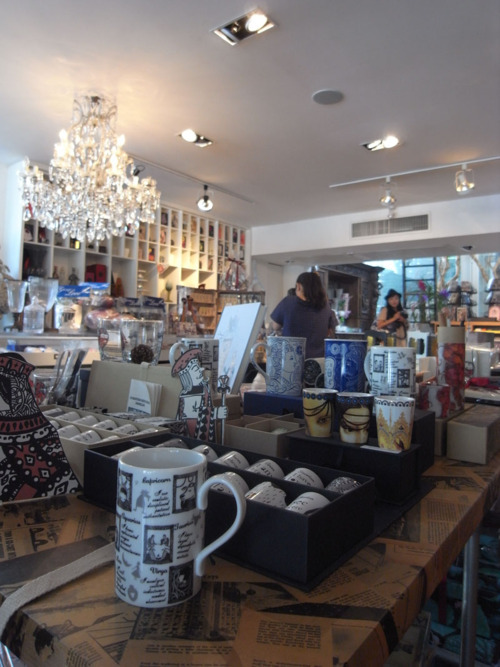
【中流層のニーズに応えたシャツ専門店「DULY」】
高度経済成長で一気に拡大した中流階級の潜在需要に応え、成功を収めているシャツ専門店「DULY」。トーマス・メイソンなど、ヨーロッパの一流生地を10年以上のキャリアを持つタイの熟練した職人が仕立てる。「タイトなフィッティングを好むバンコクの人々にとって、ヨーロッパのシャツはオーバーサイズでした」(デザインも手掛ける代表のDulyanart Bejrajatiさん)。3,950バーツ(約10,1850円)~と、百貨店のオリジナル以上、ヨーロッパのブランド以下の価格で手仕事を駆使したシャツを提供。一号店は郊外に構えたが、現在はハイブランドが一堂に会するショッピングセンター「サイアムパラゴン」内にも進出している。
【“DULY”, Shirt Shop Responding to Middle-Class Needs】
“People in Bangkok prefer tight-fitted shirts, but European ones were oversized.“ (Mr. Dulynart Bejrajati, Representative and Designer). They offer hand-sewn shirts at the price higher than department stores’ but lower than European brands’. Their first shop is located in suburb, but now they have the shop in Siam Paragon, the shopping center where all high brands have their shops.
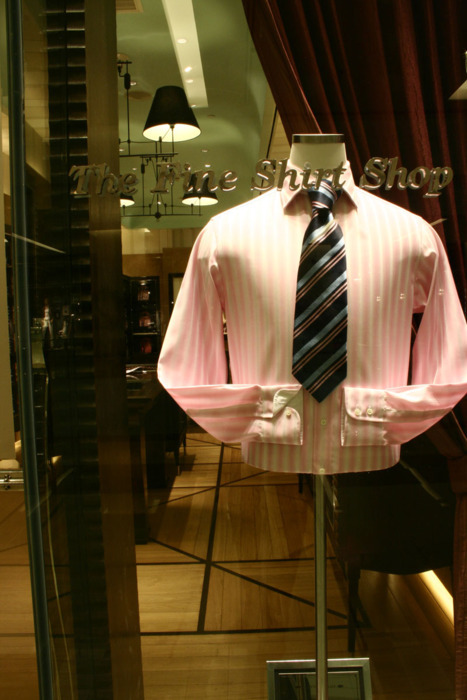
トーマス・メイソンをはじめとした高級ファブリック、1インチ18針のピッチ、柄合わせ、手縫いによるボタン付けなど、そのこだわりは日本のショップと比べても遜色ない。手仕事を駆使して、日本円にして1万円台前半の価格設定は驚きの一言だ。
Their craftsmanship achieves high standard as that of Japanese shops, such as high-quality fabric including Thomas Mason, pitch with 19 stitches per inch, pattern matching and sewing button on by hand. It cost a little higher than 10,000 yen, which is amazing considering that it’s all hand sewn.
【フェミニンな味付けが光る「Patsarun」】
2001年にオンワード樫山のファッション大賞グランプリを受賞したPatsarun Sriluansoiさん。バンコクで確固たる地位を築いたブランド「Patsarun」は現在、日本の企業と組んだ「サースト」というブランドで東京などでも知名度が高まっている。「ヴィンテージをベースにしつつ、現代のエッセンスをミックスしている。タイ人はさまざまな文化を吸収する術に長けている。僕は幼いころから建築に興味があり、パターンメイキングなどに影響を受けていると思う」(Patsarun Sriluansoiさん)。
【Feminine Touch Stands Out “Patsarun”】
Patsarun Sriluansoi won the Grand Prize at Onward Kashiyama’s Fashion Competition in 2001. Brand “Pastsarun” has established the robust foundation in Thailand and is currently gaining awareness in Tokyo as the brand named “Thirst.” “I use vintage as the base of my design and add the modern essence to it. Thai people are good at absorbing various cultures. I have been interested in architects since I was a child, and I think it has some influence on my pattern making.” (Mr. Patsarun Sriluansoi)
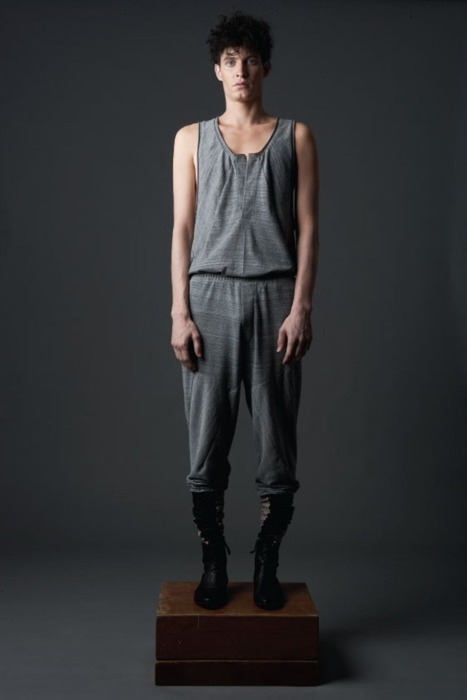
オーセンティックなモノづくりをベースにしつつ、ちょっとしたパターンにフェミニンな感性を感じる。ゲイ文化を許容する微笑みの国らしい味付け。
Slight feminine touch can be seen in some patterns, while authentic craftsmanship is based on. It reflects the Land of Smile, where gay culture is widely accepted.
【中流層拡大の追い風に乗った「ootoya」】
お米文化で親日国ということを踏まえ、海外初の出店先としてバンコクを選んだ「大戸屋」。1号店のオープンは2005年だったが、中流階級の急増と日本食ブームに乗って現在すでに28店にまで拡大している(4月12日に30号店がオープン予定)。現地代表、高田知典さんに聞いた。「各店に日本人スタッフを配し、味、サービスとも日本と同じクオリティーが提供できたことが勝因でしょう」。特筆すべきもう一つの特徴は、屋台文化が根付き、近代的な商業施設においてもオープンな造りの店が多かったバンコクにあって、あえてクローズドタイプの店にトライしたことだ。「高級志向の中流層に受け入れられ、クリスマスやバレンタインなど特別な日に使われる店になっています。デザインは宮崎さん(前出)にお願いしました」(同)
【Catching the Trend of Middle Class Expansion – ootoya】
Ootoya has chosen Bangkok for their first overseas venue, as Thailand is pro-Japanese country and has rice-eating culture. They opened the first shop in 2005 and now have 28 shops thanks to expanding middle-class population and Japanese food boom. (30th shop opened on April 12.) We interviewed Mr. Tomonori Takada, General Manager of Thai Ootoya. “Our key to success was we assigned Japanese staff at each shop and provide same quality products as the ones in Japan in terms of taste and service.” Significance is they tried out a closed style in their shop design, although many restaurants in Bangkok have open-style shops even if they are located in the modern shopping complex, as they have long history of street food vendors and people are used to eat in that environment. It is well-perceived by middle-class people who prefer high-class stuff, and the restaurants have become the venue, where guests use for special occasions such as Christmas and Valentine’s Day. We asked Mr. Miyazaki to design the shops.” (Mr. Takada)

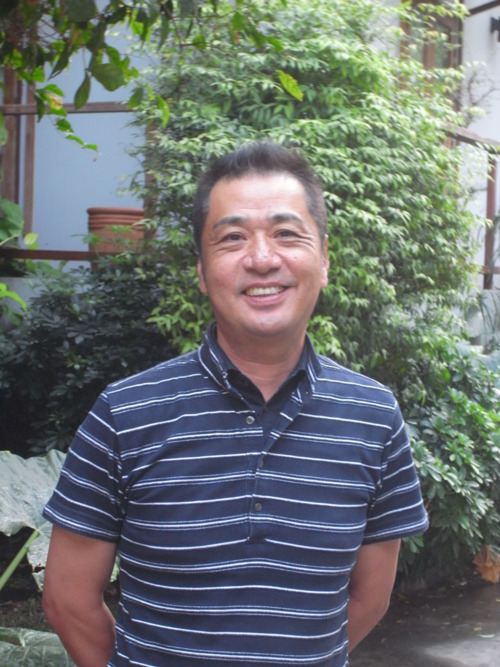
上/タイの木材を使ったファサードは、モダンで高級感溢れる造り。「大戸屋」と言えば女性が一人でも入れるなど、定食屋のイメージを変えた先駆者でもある。革新性を持った「大戸屋」らしい攻めの姿勢と言える。 下/活躍の場をバンコクに移した日本人インテリアアーキテクトの宮崎秀樹氏。http://www.msideal.co.jp/
Top/ Façade made from Thai lumber creates modern yet luxury ambience. Ootoya is a pioneer who changed the image of Japanese casual eatery, which used to be an uncomfortable place for women to eat alone. That aggressiveness well represents Ootoya, who has an innovative mind. Bottom/ Mr.Hideki Miyazaki interior architect








